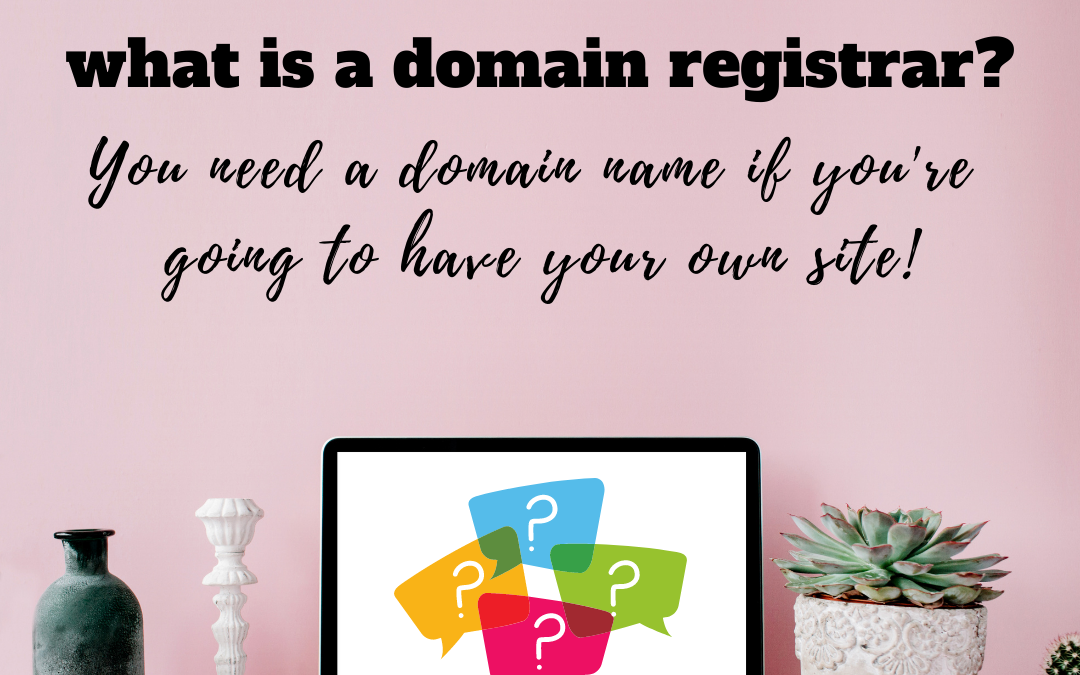It is intimidating to set up your first website. Before you can even do that you have to register a domain name.
Domain names are the common, easy to remember address for a website. Underlying the internet and web are lots of numbers called IP addresses. These aren’t easy to remember and so we use domain names. The backbone of the internet is something called domain name service. This is how computers and devices online know where to take you when you type in a domain name. DNS is the address book that organizes the names and matches them with the IP address of the server where the website lives.
Domains are registered, think of it as a lease, as long as you pay to renew, your domain name will be yours to use. Registrations run annually, so you’ll be paying to renew your domain each year, unless you paid for more years in advance.
Over the years of running my business, I’ve helped far too many people recover their domain because they didn’t have things set to auto renew, and then they forgot to pay for the renewal or they ignored the emails notifying them it was expiring or maybe they don’t check that email account anymore so never saw the notices. Sometimes, they’ve let their credit card on record expire or they got a new one and never updated their account. Either way, they woke up one morning and their email didn’t work anymore and their website was gone, replaced with something else.
A little bit of preparation goes a long way here. When you get your domain registrar account be sure to set your domain up to auto-renew and make sure you have a valid credit card or payment method on file as well as valid contact information, such as email, mailing address and phone number. And if something happens and you don’t do those things, remember that you have a grace period, and can usually pay an additional fee to restore without any problems, if you’re within a few weeks of the expiration. If you go too long, your domain may be registered by someone else and you will have lost it.
Is there a way to completely own it so that doesn’t happen? No, all registrars rent/lease you the name, no one owns their domain outright.
A word on choosing your domain: .com is still the gold standard with .net and .org next in line. There are other extensions available, if you can get the .com, it’s always the first choice. I prefer names without dashes, and like shorter domains because they can be easier to remember.
You can use your registrar to check and see if your domain ideas are available and register them there. There are also sites that have a WHOIS lookup, that let you see if a domain is registered or if it’s available.
Examples of Registrars where you can register a domain name:
- GoDaddy
- NameCheap
- Moniker.com
- Register.com
**Most hosting companies also offer domain registration.**
A lot of registrars and hosts have lots of up-sells and other things they try to get you to add when you register a domain. In the vast majority of cases, you don’t need these additional services. Steer away from offers for search engine submissions, you don’t need those.
I also like to have my domain registrations with a separate company from my hosting. You can choose to have it all in one, but let me tell you why I like to keep it separate. I’ve seen cases where a hosting company has a big technical meltdown, and when it happened, their customers couldn’t get into their system to do anything with their website or their domain names.
If you have these things separated, and the host has a huge problem, you have options and could even move your site to another provider, or at least get things like email back up and running in the interim. I know this doesn’t happen often, but it can and having the ability to continue your activities with promoting your book or keeping your blog up to date, rather than disappearing can’t be understated.
If it’s easier for you to choose one company for your domain registration and hosting, then do it that way, none of this should be a barrier to getting started.

